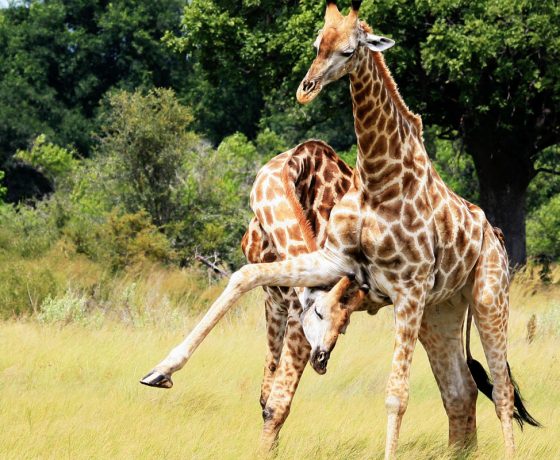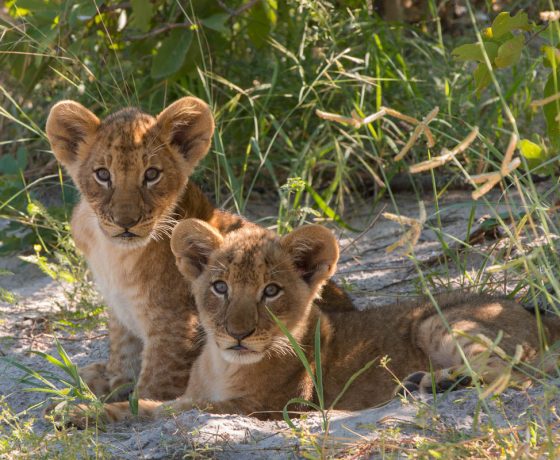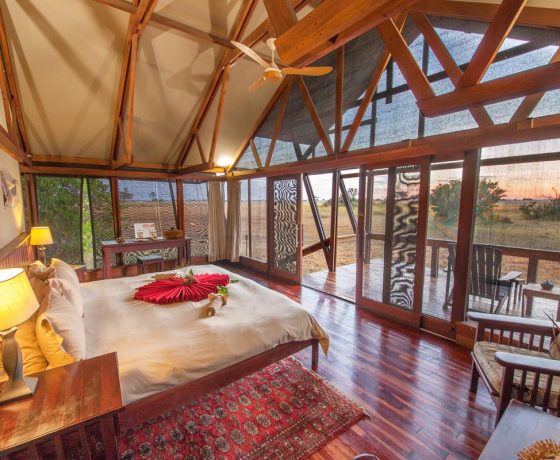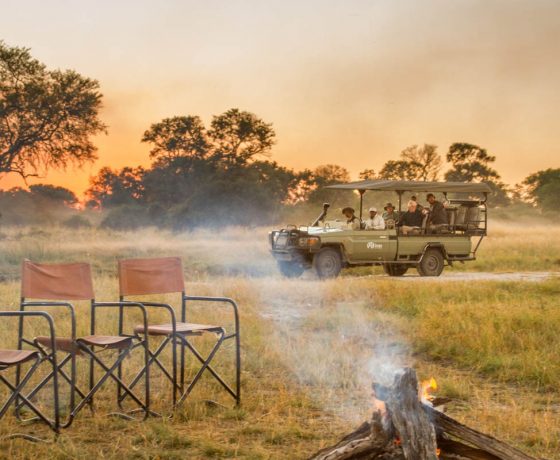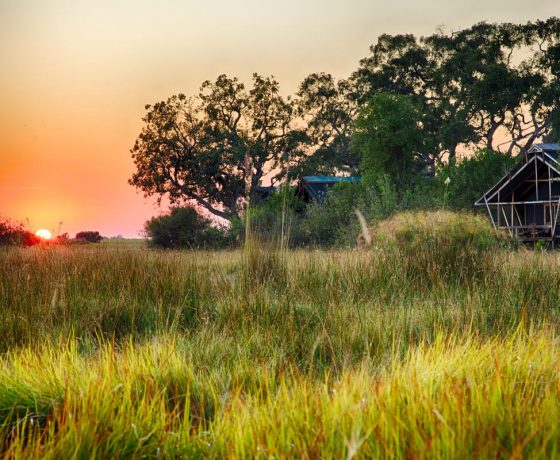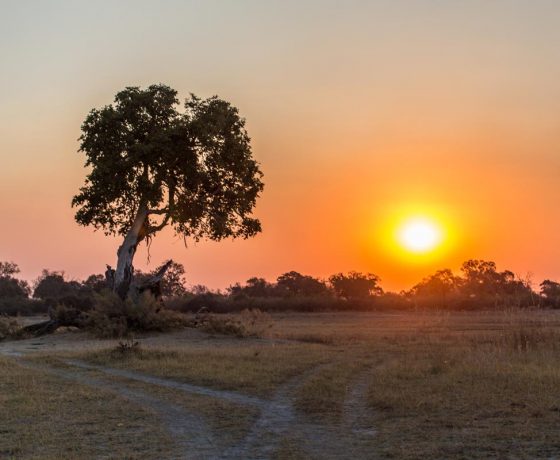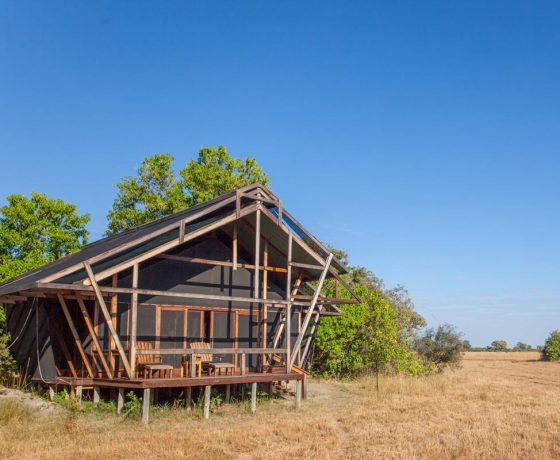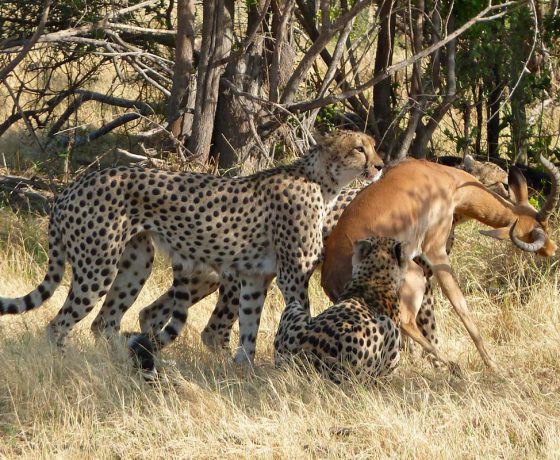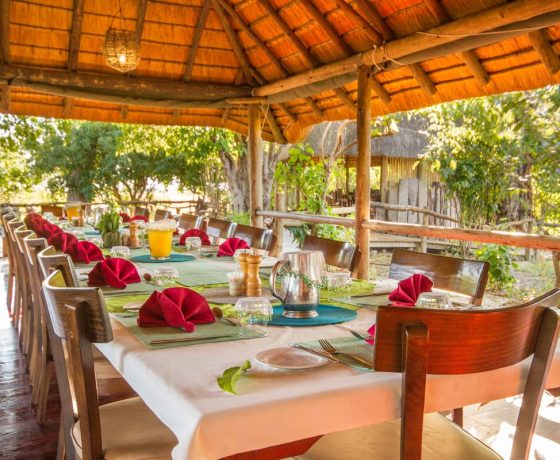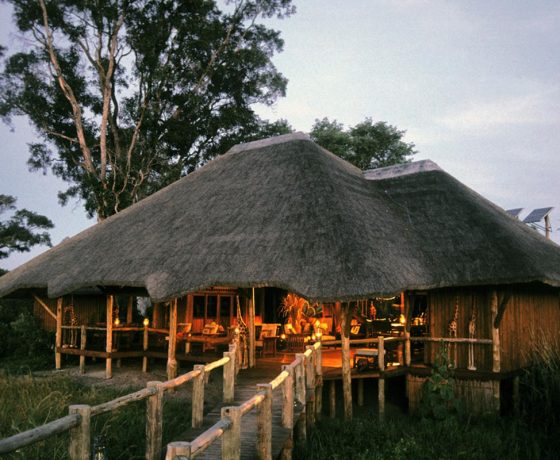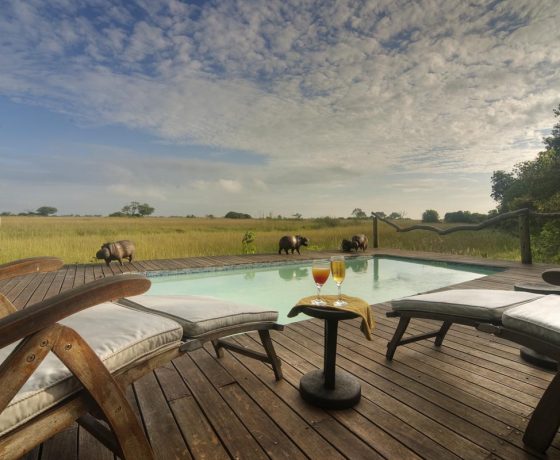Lebala Camp
Lebala Camp is in the 230,000 hectare Kwando concession, close to the Kwando River and the Linyanti marshes that form the boundary between Botswana and Namibia. Lebala meaning ‘wide open spaces’ in Setswana, is positioned located on a peninsula jutting into the marshland and the scenery is dominated by vast plains scattered with palms. Children from six years are welcome provided a private vehicle is booked. Children under six years are welcome if the camp is taken exclusively.
Accommodation & Facilities
Lebala Camp has eight large safari tents on raised teaks decks, with expansive views. There is one family tent which consists of an additional twin bedroom within the unit itself allowing parents and children to sleep in the same tent. An extra single bed can be provided so the total occupancy is two adults and three children. All have en-suite bathrooms with inside baths and outside showers. Each tent has a shaded roof and a verandah at the front. Lebala has a large thatched mess building, with a dining room, a lounge and a bar, a small library and shop. Outside there is a viewing deck, an open air fireplace, and a small pool, which is 1m-1.5m deep.
Eating & Sleeping
Separate mealtimes for children and specific dietary requests can be accommodated with advance warning. Babysitting is provided by female members of staff if required.
Wildlife & Activities
Lebala’s special ecosystem with its combination of marshes, seasonal flood plains, savannah and woodland scrub gives a wide variety of terrain and excellent wildlife viewing opportunities particularly for predators, large herds of elephant and wild dog, cheetah and lion. Wildlife viewing is by day and night drives on open safari vehicles, and guided bush walks. There is also a well-placed viewing hide in camp.
Specifically for children …
Families with children under 12 years are required to book a private vehicle which allows for maximum flexibility whilst staying at Lebala Camp. Prior to arrival families will be sent a ‘get to know you questionnaire’ so that the guide assigned to the family can tailor the safari to the family’s interests. Activities include:
• ‘Walking on the wild side’ around the camp and learning some Bayei survival skills including animal tracking and orienteering.
• Plaster-casting animal tracks for the perfect memento to share with friends back home.
• Enjoying the ‘night life’ as there’s lots to see by moonlight. (See what happens to a scorpion at night – surprise!)
• Press some flowers to take home and learn how to make traditional baskets and bangles from grass.
• Casting a rod while listening to stories of how the Bayei people live off the land in the Delta.
• Roger that! Learning the original ways of bush radio communication and alphabet.
